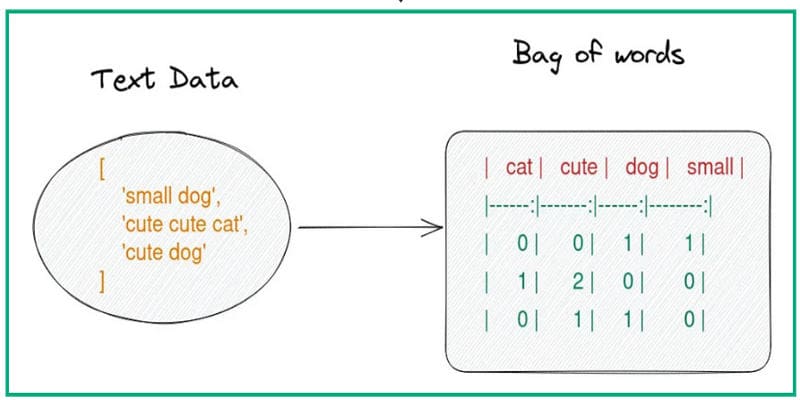Selling on Amazon used to be about hustle and timing. Now, it’s about beating algorithms, making fast data-driven moves, and adapting faster than ever. The game didn’t evolve—it flipped, and AI is driving the shift. If you're still doing things manually, you're already behind. But that's not a death sentence—it's a signal to pivot.
AI game changers are giving sellers new tools to future-proof their Amazon business with speed, precision, and clarity. This isn't about doing less—it's about working smarter. Forget trends and hype. We're talking real tools, real results, and how to use AI as your competitive edge.
Smarter Listings, Less Guesswork
Most sellers still treat their product listings like digital billboards. Write it once, and forget it. Maybe sprinkle some keywords in and hope for clicks. But AI doesn't work like that. It doesn't guess—it reads data, analyzes performance, and continuously adjusts. Listing optimization with AI isn't a one-time thing. It's a living system.
Tools like copywriting algorithms now analyze what your competition is ranking for, how customers are reacting to certain phrases, and which images perform better. Instead of spending hours rewriting a bullet point, these tools generate variants, test them, and adjust based on click-through and conversion rates. That’s not just smarter marketing—it’s time you get back.
It’s not only about words, either. Image recognition AI can now recommend better thumbnails, angles, and background tones based on browsing behavior across the platform. These tools can tell you whether your white background is hurting your impressions or if your lifestyle image needs a new mood. It’s fast, flexible, and brutally honest—everything a seller needs.
AI game-changers like this mean less hoping and more knowing. You stop shooting in the dark and start tweaking with purpose. That’s how you future-proof your Amazon business in a world that doesn’t wait.
Inventory Chaos? AI Brings the Calm
Let's be real—inventory issues can tank an Amazon business faster than a bad review. You run out, and your listing drops. You overstock, and you bleed cash in fees. AI rewrites that playbook.

Forecasting used to rely on historical data and some seasonal guesswork. Now, AI digs deeper. It factors in broader trends, cross-industry data, and even external signals like weather, economic shifts, or local events that could impact demand. If Father's Day gift trends spike early due to a viral TikTok, the AI sees it first.
Smart demand forecasting isn’t just about filling your shelves—it’s about timing, cash flow, and peace of mind. With AI-powered tools integrated directly into your fulfillment process, you get alerts before issues arise, allowing you to adjust sourcing and shipping timelines before problems snowball.
Even restocking gets smarter. AI systems are now syncing with supplier APIs, factoring in shipping times, customs delays, and internal warehouse bottlenecks. They don’t just recommend how much stock to order—they help time it to the day.
By embracing this wave, you're not just staying stocked—you’re staying strategic. And that’s the real edge in a platform that penalizes inconsistency more than anything.
Data That Tells You What to Do (Without the Noise)
The dashboard overwhelm is real. Amazon’s backend can feel like you’re staring into a wall of graphs, percentages, and warnings—none of which tell you what to do next. AI clears the fog.
Modern AI tools translate raw data into recommendations. Instead of seeing that your return rate went up 2%, AI shows that it spiked after changing your packaging and then suggests reverting or testing a new version. It connects the dots. You don't just monitor your business—you steer it.
AI is also reshaping pricing strategies. Old-school prices focused on being the lowest or matching competitors. Today's tools analyze buyer behavior, time of day, customer type, and even product sentiment to price dynamically—without a race to the bottom. Some tools even link review trends with pricing strategies so your product can ride the wave of good feedback instead of getting lost in it.
That’s the essence of AI Game-Changers—they don’t just give you numbers. They give you direction.
If you’ve ever spent a day crunching spreadsheets, testing ad keywords, or trying to make sense of session drops, this tech feels like breathing again. It’s a shift from managing chaos to guiding growth—and that shift is what future-proofs your Amazon business when competitors are still stuck in reactive mode.
Advertising That Learns While You Sleep
Amazon PPC isn’t a set-it-and-forget-it game anymore. Manual keyword testing is too slow. AI ad managers are now scanning performance by the hour, making real-time adjustments based on buyer behavior, keyword intent, and ad fatigue. That means better conversions, tighter budgets, and ads that evolve with the market.

These platforms are no longer just about bidding more—they’re about bidding smarter. AI can now predict when a user is most likely to convert, down to the device and time of day. It pauses wasteful spending before it happens, shifts the budget toward winning campaigns instantly, and helps you understand why something is working, not just that it is.
Beyond performance, AI helps with ad copy, creatives, and audience segmentation. It identifies which audiences are worth targeting and which are just draining your ad dollars. It creates lookalike profiles that Amazon doesn’t even show you. And when trends shift, AI adapts—not in a week, but in minutes.
You’re no longer optimizing ads based on gut feeling—you’re letting the data work for you while you sleep.
This isn’t about letting AI take over your business. It’s about equipping your business to run like a modern machine, with you steering the wheel and tech doing the heavy lifting. The ones who achieve this balance are scaling while others stall.
Conclusion
The future of selling on Amazon belongs to those who move with precision, not guesswork. AI isn't just changing the game—it's building a new one. From smarter ads to sharper inventory control, these AI game changers give you the edge to future-proof your Amazon business now. Success will favor the seller who blends strategy with speed and lets data drive the moves. This is your moment to evolve—not later, not someday, but right now, while it still counts.











